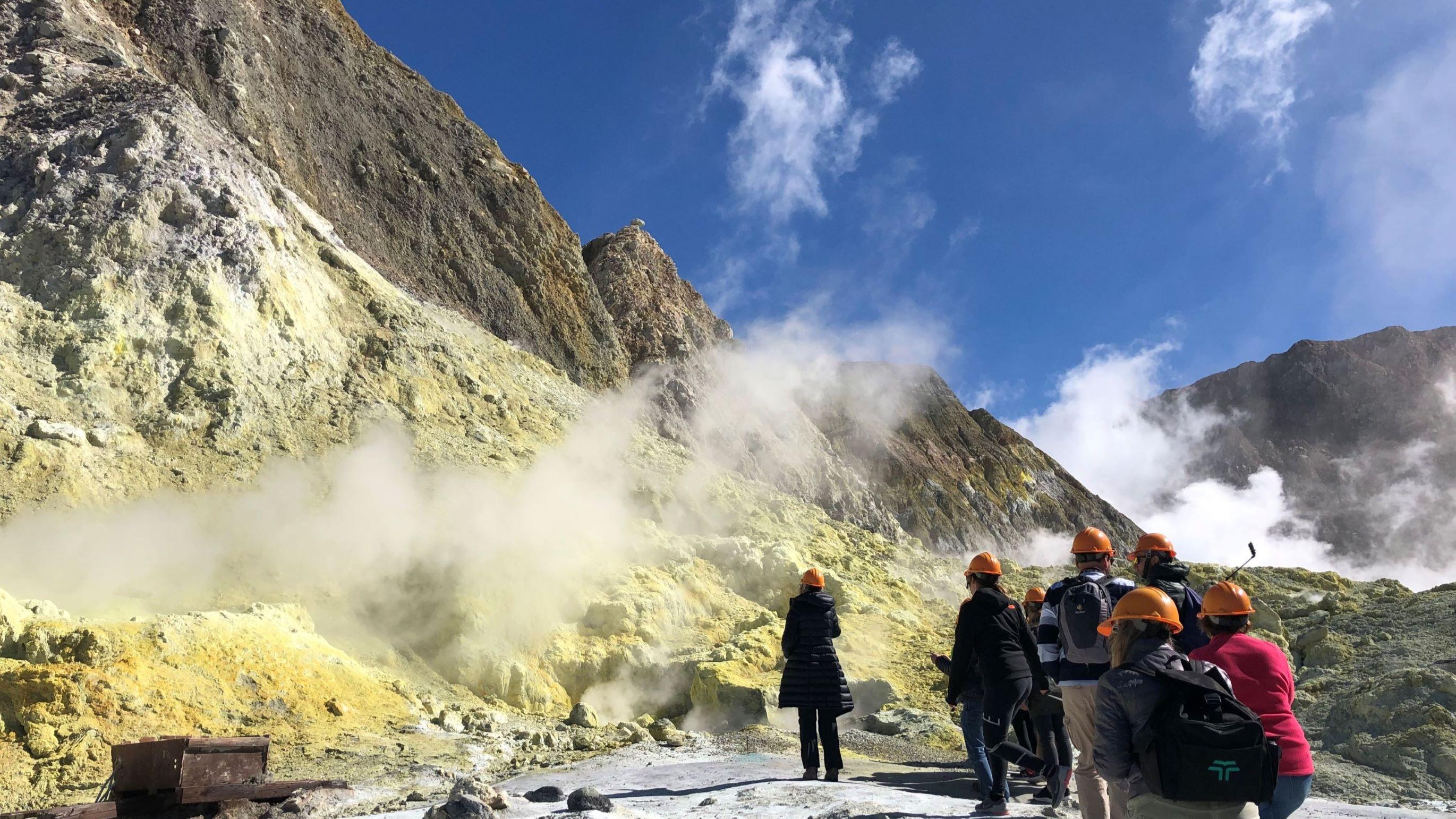
Submitted by Dr C.M. Martin-Jones on Mon, 16/05/2022 - 12:04
In a new article published in Geoscientist Magazine, Olivia Hogg - a PhD student in our Department - explores how metal deposits around volcanoes could pave the way for a more sustainable future.
Olivia is in her second year of research; investigating how metals are released from volcanoes and the processes involved in ore formation. Olivia’s work focuses on the Vanuatu Archipelago which accommodates some of the most metal-rich outgassing plumes globally. Olivia is also a committee member of Women in Mining, which advocates and speaks for women in the mining sector.
In the article, ‘Mining the Brine’ Olivia and co-author Professor Jon Blundy, from the University of Bristol, explain how a deficit in the sustainable resources needed for renewable energy could be sourced readily from the brines, or hydrothermal fluids, produced by volcanoes.
As the fossil fuel era draws to a close and we move towards alternative methods of electricity generation there is an enormous demand for metals such as copper, lithium and nickel. Lithium in particular is a key ingredient in batteries needed for electric cars and storage of renewable power.
“To satisfy our continued need for energy, we must change how we mine and what we mine. The mining industry will need to ‘scale-up’ whilst maintaining low emissions.”
Hogg and Blundy propose that extracting the brines from volcanoes might provide, “One solution to the rapidly emerging energy crisis…an unconventional way that offers a less environmentally impactful and potentially carbon-zero approach.”
Looking to the future, they write, “As with so much of what we consume, it is vital to acknowledge the link between resources and their supply chain.”
“As Earth scientists, we have a unique perspective that allows us to address the critical resources challenges ahead. This includes improved strategies for finding resources, and the development of cleaner and more efficient extractive and refinement processes.”

